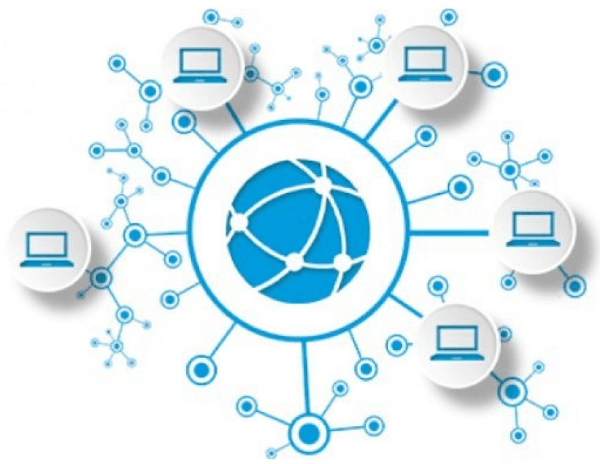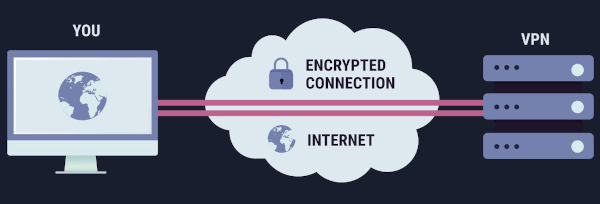
These days, it is quite hard to find a person who does not use the Internet. Even older people have already got a web connection for communication and mastering the most popular apps. This makes the Net such a useful tool. However, certain dangers lay under this cross-functionality that can be avoided using Virtual Private Networks or VPNs for short.
Troubles Averted Thanks to Virtual Private Network
- The leak of private data and info. While a person is connected to a public network or even to a wireless router at home, he or she can become a victim of a scammer that may use these data to get money. Bank cards’ details, emails, contacts’ lists, agendas, calendars — this is not the end of the list. All this info can be obtained if a person is connected to the network open for public access, or even to a router at home that can be hacked. Hence, even using the web only at home, one cannot be completely safeguarded.
- Collection of the browser history by the provider of Internet services, as well as by the third parties. Undoubtedly, it is disappointing that someone will be aware of all of your activities online. This means that an intruder will know what and when you eat, the plans and agenda for the upcoming vacation, the movies you enjoy watching. All aspects of your life become transparent. Such intruder can turn out to be a stalker, robber, or any other kind of criminal.
- Spending too much on goods and wares is another inconvenience that may occur. Every opened website remembers the user's IP. After several visits, the resource can increase the cost of a product or service. Undoubtedly, the user who checks airfares regularly plans a vacation. He or she will still purchase tickets, even with a 5% price increase. The cost of a service or ware can vary in the region from which a user visits a particular site.
- Blocked access to specific resources by the government or providers. This applies to countries where web censorship is present. China (Great Firewall of China), Russia, North Korea, some Muslim states, and some other countries prohibit certain resources like Facebook and YouTube.
Who Needs a VPN?
Taking into account the above plausible threats, the conclusion is simple — every user of the internet. Thanks to using VPNs, one may save money while making purchases on the web, protect oneself, even utilizing the internet at home or in public places. People living in countries with strict censorship, as well as travelers visiting them, will, undoubtedly, enjoy the benefits of a tailored virtual private network for traveling.
How do VPNs Work?
A VPN foresees the use of one more net that is created above the net of an ISP. In other words, a user connects to a server, the primary function of which is the encryption of the data transfer between the resource that is visited, and a user. Even if someone manages to intercept the data transferred, it is close to impossible to decrypt them.
The servers can be located in different countries, making it possible to choose diverse regions from which the connection to a website will be made. A user can even manually select which VPN server to use. For instance, this is a useful feature for SEO specialists and testers who need to check how a site works in diverse geographical regions.

The Main Disadvantages of a VPN
Undoubtedly, utilizing the technology of the VPN has several benefits that have been previously mentioned. Still, there is nothing immaculate. Aside from the above advantages, some flaws vary depending on the service a user chooses:
- Reduced speed is mostly faced by users of free services and apps. If not significantly, it makes sense to wait instead of paying for a subscription. However, the users who appreciate every minute should consider a paid service.
- The limited number of servers and geographical locations. For a digital marketer, for example, it is significant to know how a site is accessed from a particular country. Hence, the possibility to make a choice is expected, although not every VPN service can provide it.
- Incompatibility with all the devices and browsers can be inconvenient for the one who needs a service for a smartphone, iPad, and a laptop that are produced by different manufacturers.
These are not all the flaws that can be faced by a person utilizing a VPN. The list depends on the provider of the service. Hence, it is essential to read reviews on the web before choosing one suiting most requirements and needs. Among the others, it is feasible to check ExpressVPN vs. NordVPN reviews and choose the one that will suit the expectations of a particular user.
Undoubtedly, every user is looking for ways to save money. But paid services indeed provide more reliable protection, higher speed, and many other benefits. Luckily, there is a chance to make use of a free trial period so that to assess a particular VPN service.
Reasonable pricing for a VPN subscription is what a user pays for his or her safety while using the web. It is always better to pay for safety precautions like for house security warding than to count losses if a criminal steals something or harms in any other way. Be cautious, online, and offline, and make use of all the present-day means of safeguarding.
X


 Copyright 2000-2025, WebSitePulse. All rights reserved.
Copyright 2000-2025, WebSitePulse. All rights reserved.